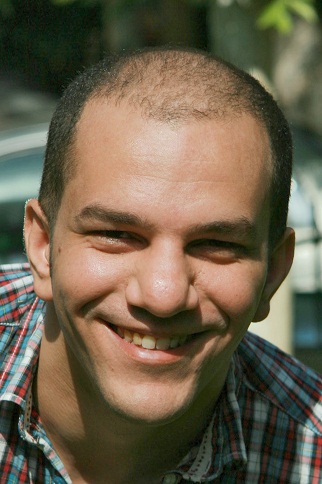The Muslim Brotherhood announced a few days ago that they will protest on Tuesday in support of Morsy’s latest decree in Abdeen Square. Residents of Abdeen area hung up a banner reading, “Ikhwan not welcome.” The Brotherhood moved the protest to the vicinity of Cairo University.
The students on social media outlets promised them a “special welcome” and advised them to relocate their protest to Giza Zoo (right next to the university) warning that even the animals will chase them away, which lead of course to a torrent on typical Egyptian jokes.
On Monday night an official announcement was made; the Brotherhood will not protest that day to avoid bloodshed.
The Brotherhood has not fully got it yet, but they are currently being socially isolated by the people not the power of the law. It is the first step towards becoming a social leper. Exaggeration? Let’s examine the facts.
Following Morsy’s latest constitutional declaration giving himself demi-God powers, political groups convened last Thursday announcing the formation of a front to fight the “monopoly” of Ikhwan over Egypt promising not to allow another dictatorship to rule the country. The groups were formed of socialists, seculars, liberals, moderates and even Mubarak supporters leached themselves to the initiative.
Al-Nour party, most prominent Salafi group in Egypt, protested the declaration because of the unlimited powers Morsy bequeaths upon himself and criticising the way Morsy sacked the prosecutor general, corrupt as he is, as it violates the sanctity of judicial law.
Judges have called for a national strike two days ago and some NGOs estimate the court strikes to be nearing 70% all over Egypt against a decree deemed to weaken judiciary powers.
The press syndicate held its annual meeting two days ago, refusing the decree with reporters throwing out their “elected” Ikhwan representative out of the meeting, calling for the downfall of Morsy, joining Tahrir sit-in, and threatening a general strike.
Thinkers and writers have flooded local papers with columns threatening the beginning of tyranny with reference to Adolf Hilter’s rise to power through democratic elections and Iran’s Al-Khomeini who took over the country after a revolution, forming his revolutionary guard and executing and imprisoning his critics.
Independent workers unions urged workers to join the current Tahrir sit-in, objecting the decree as well as the newest Labour Act Morsy issued decried by many labor organisations and civil societies mainly as it does not allow disabled workers to retain their union membership and allowing the current minister—a Muslim Brotherhood labour leader—to appoint union board members among other catastrophic results.
The United States, Morsy’s current best friend following the Gaza-Israel ceasefire, has raised its eyebrows in worry over the declaration. Hillary Clinton on the phone with Egyptian foreign minister told him the United States wants to see “the constitutional process move forward in a way that does not overly concentrate power in one set of hands” and expressed her worry over “competing demonstrations.”
Away from politicians and their games, are the protesters who have taken over Tahrir since 19 November. My biggest surprise was their age, mostly under 18 with vengeance combined with adolescent hormones leading to a volatile mix that won’t give up unless their demands are met. They do not fear death or injury. They play with tear gas canisters as they would a ball. They welcome gunshots not caring about the results.
Most of those whom I have spoken to either buried a friend in 25 January 2011 revolution and its following battles, or lost a loved one in the Port Said football match massacre. Their demand is the same: fair trials of those who killed their loved ones. They do not care about elections, politics or the judiciary system.
Morsy has become another Mubarak in their young minds with killers vindicated in courts, continuous torture cases by the police, a poverty spike that is affecting them on daily basis and the unfulfilled promise of the revolution of “a better life for all,” which was why people outset Mubarak in the first place.
On Monday, Egyptians buried two boys; 17 year-old Gaber Sahah, “Jika” to his friends, shot in the face and 15 year-old Islam Massoud, bludgeoned till death. Jika was a Baradei-supporter and 6 April activist while Massoud belonged to the Muslim Brotherhood. The funerals ran simultaneously in Cairo and Damanhur. Both mothers were taped having a nervous breakdown. Jika’s father and Massoud’s brother accused Morsy and “his brotherhood” of killing their children.
Historians assure that Egypt has never quite suffered a civil war.
In three months of Morsy’s rule, Egyptians are facing-off on the streets.
Now the Brotherhood has two options; either Morsy takes back his decree, which would mean his loss to the pressure of civil groups and the street or he insists on it causing more street clashes and more blood that in turn can lead to three different scenarios; the ousting of Morsy, the Brotherhood fortifying their first step to a tyrannical rule or a much-feared military intervention.
Their promise of a “renaissance” project has turned into a promise of a civil war.
As tens of thousands fill Tahrir square Tuesday afternoon as I am writing these words, the credibility of Ikhwan is dwindling by the second and their social isolation may soon follow.


